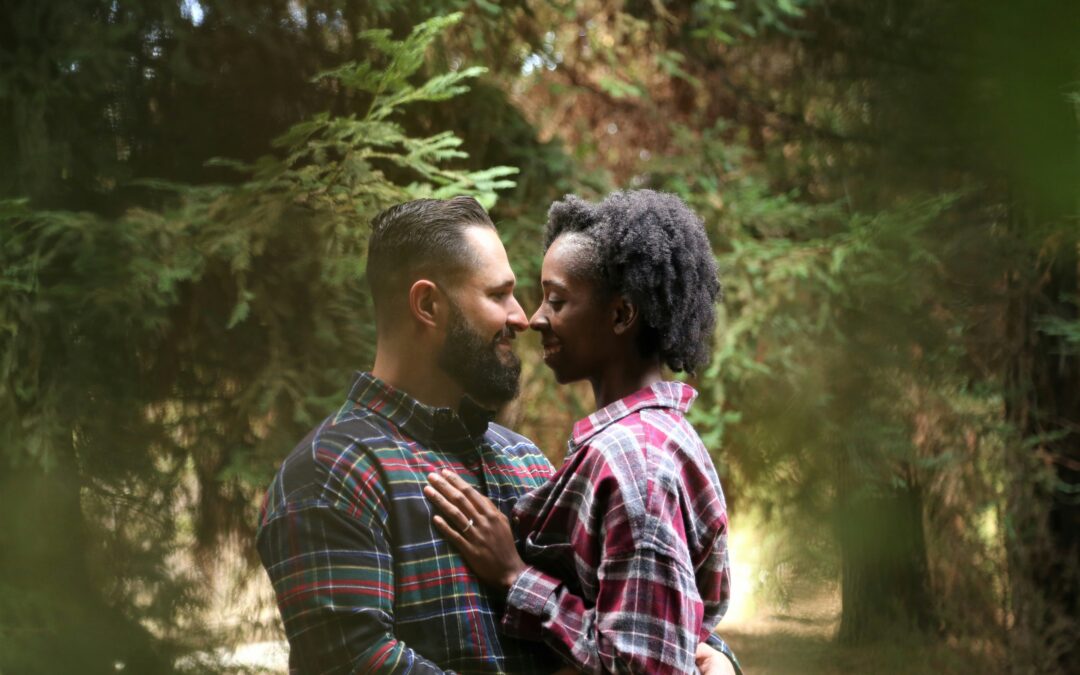It’s fascinating to think about what happens in the brain when we’re in love. With advances in neuroimaging like fMRI, researchers like Daniel Siegel can actually observe how the brain “lights up” in response to love — activating in ways similar to the effects of strong, stimulating substances.
In those early stages of a relationship, when you feel intoxicated by your partner’s presence, that’s not just in your imagination. Dopamine, oxytocin, adrenaline, and serotonin all work together, creating a cascade of “feel-good” chemicals. These early feelings can seem like they’ll last forever, but in reality, maintaining them requires intention and effort.
As relationships move beyond the initial limerence phase, or the early period marked by intense emotions and attraction, those high levels of feel-good chemicals can start to stabilize. While that shift is completely normal, it can make us feel that our relationship has lost some of its spark. But the good news is that we have the power to reignite those feelings of connection. Intentional habits like building fondness and admiration, turning towards each other’s bids for connection, and prioritizing shared meaning can keep the brain’s reward systems engaged for the long haul.
This is where friendship — the foundation of a strong, lasting relationship — plays a vital role. In the Gottman method, we talk about friendship as one of the core elements of a healthy partnership, along with shared meaning and effective conflict management.
Friendship in a relationship involves actively knowing each other’s inner worlds, or love maps, and nurturing fondness and admiration by thinking positively about our partner. This isn’t about ignoring conflict or challenges; it’s about choosing to see the best in each other, even when times are tough.
When we’re intentional about responding to our partner’s needs, both big and small, we reinforce those neural pathways that contribute to lasting love.
Conflict, another crucial part of a strong relationship, affects our brain chemistry too. During disagreements, it’s natural to experience a dip in those “love” chemicals. However, if we approach conflict with positivity — using gentle communication or owning our own part in the conflict — we can often reduce these dips. Short-circuiting negative feelings in these moments can actually make space for positive connection, even when we disagree. Over time, this creates a sense of trust and emotional safety, reinforcing our brain’s ability to think positively about our partner, even during difficult times.
Finally, shared meaning is perhaps the most powerful key to sustaining that initial bond over the years. When we cultivate a shared purpose in our relationships, whether that’s raising children, building a life together, or working towards a shared dream, we naturally experience a release of dopamine every time we act in service of that purpose. This sense of shared mission strengthens the bond we feel with our partner and helps us feel fulfilled within the relationship.
Even small acts, like speaking kindly about our partner to others, can make a difference. Just as speaking positively can reinforce our attachment, badmouthing our partner can weaken it, impacting our brain’s capacity to nurture loving feelings. Though there’s certainly a time to talk honestly about relationship challenges, this is best done with a trusted friend or therapist who can offer constructive support.
Through friendship, mindful conflict, and a shared vision, you can continue to experience the same connection you felt at the beginning of your relationship. With time and intention, love can become even more meaningful — because you’ve built it together.
Photo by Jose Escobar on Unsplash


